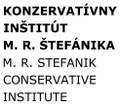
 Read an extract from an interview with Josef Šíma from the Czech Liberal Institute, who was a guest speaker at the CEQLS winter lecture held by the Conservative Institute in Bratislava on December 13, 2006.
Josef Šíma has long fought for the protection of private property. In his opinion the inviolability of private property holds the answers to the question of how to replace the public good produced by the state and what should replace it. He would like to limit the state’s role in society to setting some basic rules both economic and social at the lowest possible level of reallocation.
Read an extract from an interview with Josef Šíma from the Czech Liberal Institute, who was a guest speaker at the CEQLS winter lecture held by the Conservative Institute in Bratislava on December 13, 2006.
Josef Šíma has long fought for the protection of private property. In his opinion the inviolability of private property holds the answers to the question of how to replace the public good produced by the state and what should replace it. He would like to limit the state’s role in society to setting some basic rules both economic and social at the lowest possible level of reallocation.
Q: Is there a reason that would allow the state to touch private property such as expropriation which a liberal could accept?
A: From a historical point of view, private property was always seen as something sacred. That indicates that no such basic reason exists. But on the other hand many people argue that although expropriation is not correct and it is costly the benefits are higher.
Q: Can these be calculated?
A: Some people argue that the in the final analysis it is advantageous. But no, there is no way of calculating it. If there were any advantages these would have a short-term effect such as the faster completion of a factory or motorway. From the long-term perspective, there are more problems in the form of uncertainty of owners.
Q: Does a liberal recognise the term “public interest” at all?
A: This is not a case of liberal versus non-liberal. Even 19th century classical liberals stated that the law had a certain scope and within this scope it fulfils what we today call the public interest. That means it solves problems, allows wealth creation, creates conditions that allow long-term planning and most important does not create either winners or losers, or privileged and non-privileged. The public interest should, and this is its basic principle, be beneficial for everybody.
Q: What is the maximum level of competencies you would give a government?
A: There is a limit we may or may not like. The role of the state is to maintain social order and justice.
Q: That is a rather minimalist view.
A: Anybody can define the difference between a cabinet that establishes some order and protects society from thieves and a cabinet that takes away money and redistributes it. The government does not have to take from one and give to the other. It can limit its role to things everybody would be grateful for.
Extract from an interview published in the Slovakia`s leading economic weekly TREND.